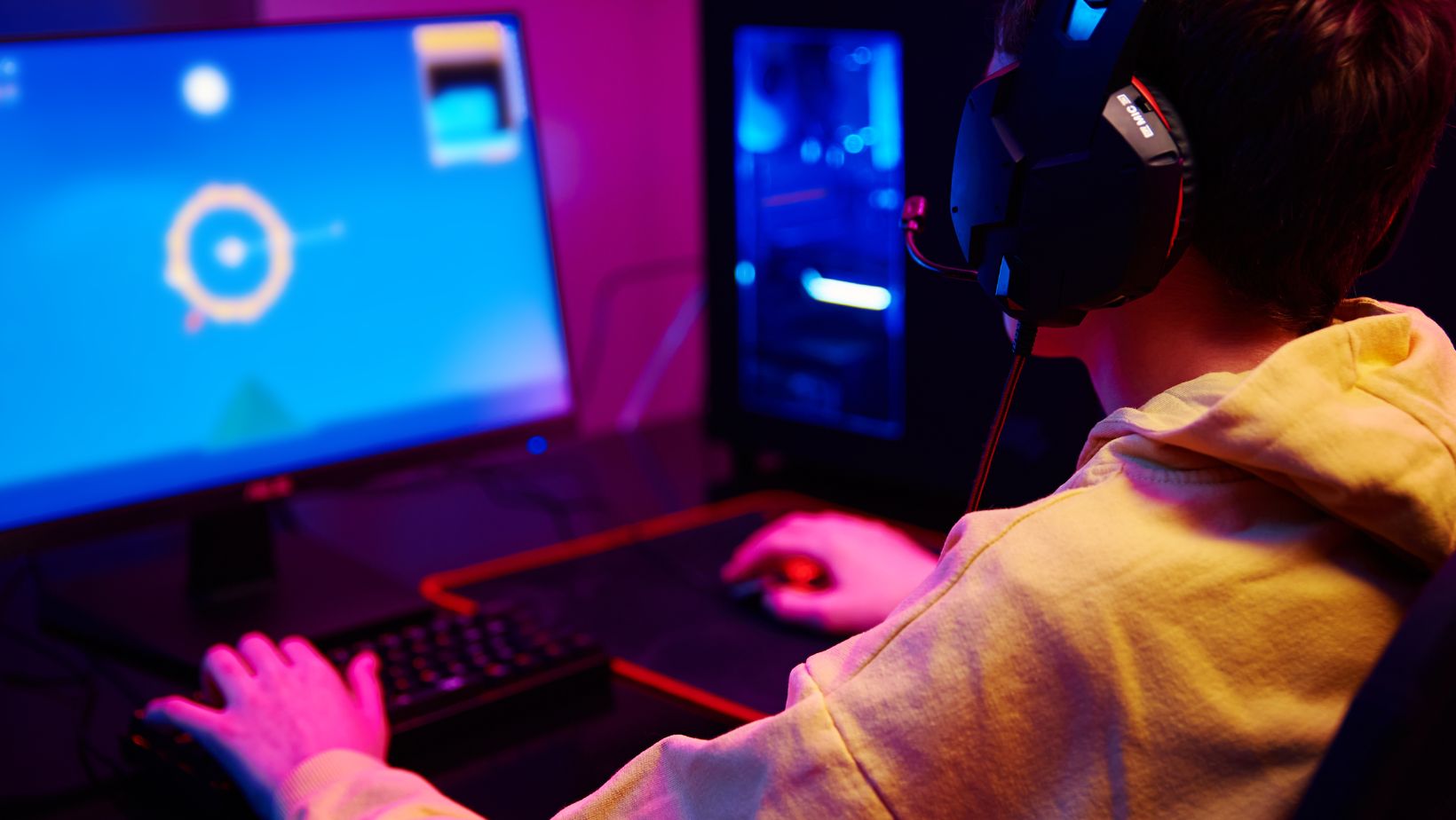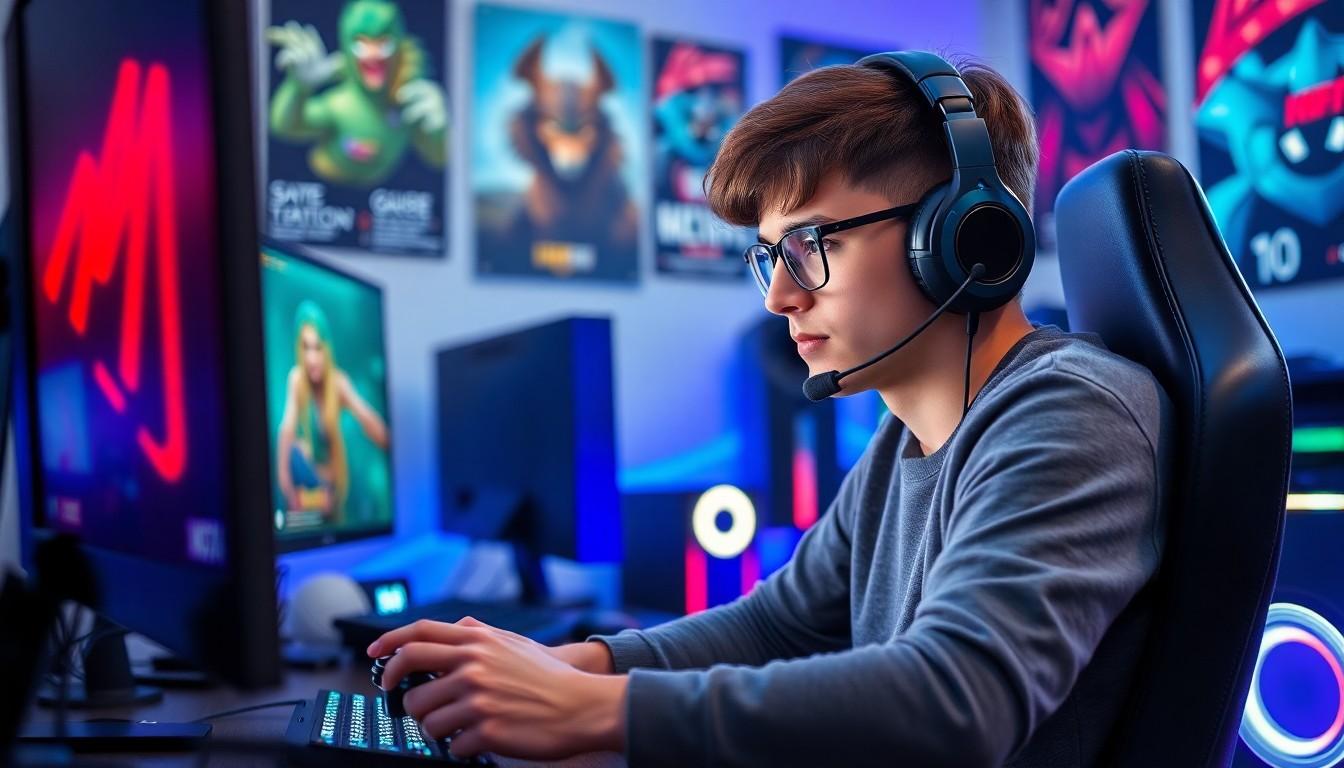In the ever-evolving world of gaming, mastering the right strategies can be the difference between a glorious victory and a cringe-worthy defeat. Whether it’s outsmarting opponents in a battle royale or solving intricate puzzles, having a solid game plan is essential. After all, nobody wants to be that player who charges headfirst into a boss fight without a clue—it’s like bringing a spoon to a knife fight!
Gaming Strategies
Mastering gaming strategies plays a crucial role in achieving success. Implementing effective strategies can make the difference between winning and losing. Different games require unique strategies, tailored to their mechanics and objectives. In competitive games, knowing the map layout, character abilities, and opponent tendencies provides significant advantages.
Various types of gaming strategies exist. Tactical strategies focus on short-term actions that lead to victories in specific scenarios. For instance, ambushing opponents or securing valuable resources exemplifies this approach. Strategic strategies prioritize long-term planning, emphasizing resource management and positioning for future engagements. Adopting these strategies facilitates improved decision-making during critical moments.
Moreover, understanding team dynamics greatly enhances multiplayer gaming experiences. Coordination among team members fosters effective communication and synergy. Assigning roles based on individual strengths further boosts a team’s likelihood of success. For example, designating a player as a healer while others focus on damage can create a balanced approach to gameplay.
Analyzing successful players offers valuable insights into effective strategies. Studying their gameplay reveals essential techniques, such as resource allocation and enemy prediction. Players can adapt these techniques to enhance their own strategic approaches, leading to improved performance.
In addition, recognizing the importance of adaptability is key. Games often evolve through updates and changes in player behavior. Adjusting strategies to align with the current meta ensures relevance and efficiency. Players who regularly analyze their gameplay and adapt strategies accordingly often see substantial improvements.
Overall, focusing on effective gaming strategies fosters better performance in both competitive and casual environments. Engaging with different tactics allows players to refine their skills and elevate their gameplay experience.
Types of Gaming Strategies

Different gaming strategies cater to various gameplay styles and objectives. Players often select strategies that complement their skills and enhance their chances of success.
Offensive Strategies
Offensive strategies center on aggressive gameplay and proactive tactics. Players prioritize attacking opponents to secure early advantages, applying pressure to control the game. For instance, in first-person shooters, flanking enemies and utilizing cover effectively can catch opponents off guard. Quick decision-making and fast reflexes enhance offensive plays. Rushing objectives in multiplayer modes can also lead to team victories. Recognizing opportunities to outmaneuver foes is crucial, as is continual adaptation to opponents’ strategies.
Defensive Strategies
Defensive strategies emphasize protecting resources and maintaining control. Players focus on minimizing losses while capitalizing on the mistakes of their opponents. Strategic positioning on maps ensures strong defensive plays in lane-based games. Building protective structures in survival games creates safe havens during critical moments. Effective communication with teammates strengthens defensive coordination, leading to successful ambush opportunities. Analyzing the opponent’s attack patterns can inform better placement and timing for defenses. Players maintaining patience often find themselves rewarded when waiting for the right moment to strike back.
Developing Effective Gaming Strategies
Mastering effective gaming strategies enhances overall performance. Players can significantly improve their skills through specific approaches.
Analyzing Opponents
Identifying an opponent’s weaknesses plays a crucial role in competitive gaming. Players should observe patterns in their gameplay, noting strategies that led to victories or defeats. Carrying out research on top players provides insights into successful techniques. Focusing efforts on recognizing enemy behavior allows for better counter-strategies. Engaging in matches with stronger players helps learners adapt to higher skill levels. Establishing clear communication within teams fosters collaboration in analyzing opponents. Review sessions after matches can highlight areas for improvement, ensuring continual growth in gameplay.
Adapting to Game Mechanics
Understanding game mechanics is essential for formulating effective strategies. Players must familiarize themselves with each title’s unique rules and systems. Mastering control schemes greatly influences gameplay efficiency. Players who adapt quickly to changes in game environments often outperform their competitors. Utilizing training modes or tutorials can speed up the learning process. Observing how mechanics interact can reveal creative opportunities for strategy development. Continued experimentation with different tactics will enhance adaptability, ensuring players remain competitive in constantly evolving landscapes.
Implementing Gaming Strategies
Effective implementation of gaming strategies enhances a player’s overall performance and success. By focusing on practice and team communication, gamers can significantly refine their approach to gameplay.
Practice and Execution
Consistent practice sharpens skills relevant to the game. Players enhance their execution by regularly participating in matches and focusing on specific strategies. Engaging in training modes allows for experimentation with different approaches. Gamers improve their decision-making speed through repeated practice, fostering confidence during actual gameplay. Additionally, reviewing past sessions reveals mistakes and helps in formulating counter-strategies. Observing stronger players provides insights into effective tactics, which can be integrated into personal gameplay styles. Ultimately, continuous practice establishes a solid foundation for implementing strategies effectively.
Team Communication
Effective team communication plays a crucial role in multiplayer environments. Players must share information about opponent positions, strategies, and immediate plans to enhance coordination. Utilizing voice chat or text communications ensures that all team members stay informed during matches. Assigning specific roles within the team can lead to better execution of strategies, as each player knows their responsibilities. Encouraging open dialogue fosters trust and collaboration, which are essential for overcoming challenges. Regularly discussing performance and adapting strategies based on team feedback creates a dynamic gameplay experience. Altogether, strong communication enhances teamwork and aligns game objectives toward victory.
Competitive and Casual Environment
Mastering gaming strategies is essential for anyone looking to excel in both competitive and casual environments. By understanding the nuances of different approaches players can significantly enhance their gameplay experience. Whether focusing on offensive tactics for quick victories or defensive strategies for long-term success adaptability remains key.
Engaging with stronger opponents and fostering effective communication within teams can lead to marked improvements. Regular practice and analysis of gameplay help players refine their skills and develop counter-strategies. Ultimately a well-thought-out game plan coupled with the ability to adapt to changing circumstances can make all the difference in achieving victory.

